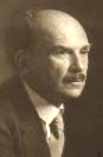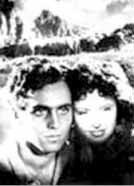Tiefland - A Brief Introduction
By Jean Peccei
The March 2002 issue of Classic FM Magazine, reported that José Carreras had 'unearthed' the Catalan version of the early 20th century opera, Tiefland, and was aiming to bring a new interpretation of this opera with the Catalan libretto to Barcelona, Washington and Italy. However, the Liceu utlimately rejected the idea, thus making a future production in Catalan highly unlikely for the foreseeable future. Below, is a brief introduction to the work that had so captured Carreras' imagination...
Tiefland (The Lowlands) was composed by Eugen D'Albert and based on the
Catalan play Terra baixa by Àngel Guimerà. The play had considerable
success, and in addition to inspiring the opera by D'Albert, it was the
subject of several films. The most famous film version (begun in 1940
and finally premiered in 1953) was by the German director Leni
Riefenstahl, who also played Marta in the film. (In the 1990's, the Catalan composer, Salvador Pueyo, wrote another opera based on Terra Baixa with a libretto in Catalan by Guillem Jordi Graells.)
D'Albert's Tiefland had its premiere in Prague in 1903. And although rather
sporadically performed outside of Germany, it has remained in the 20th century repertoire (with the German libretto adapted by Rudolph Lothar from the Catalan play). Kirsten Flagstad made her operatic debut at the age of 18 in Tiefland and the young Maria Callas performed in the opera in Athens in the 1944 -1945 season. Tiefland had its American premiere in 1908 and was given a new production by The Washington Opera in their 1994-95 season.
The opera's most recent recording, issued in July 2003, is with Lisa Gasteen as Marta and Johan Botha as Pedro (Oehms OC 312). Also available is the 1983 version with Eva Marton and René Kollo and the Münchner Rundfunkorchester conducted by Marek Janowski. (ARTS 47501-2)
Like I Pagliacci and Cavalleria Rusticana, Tiefland has a southern
European setting (partly in the Pyrenees mountains and partly in the
Catalan lowlands of the title) and centers around a love triangle where
jealousy inevitably ends in murderous rage. However, it differs from
them in that at the end both the tenor and the soprano live to tell the
tale. The lead tenor role (Pedro) has usually been sung by a heldentenor
and the score itself, like many 20th century operas, is more dramatic
than melodic. Not surprisingly, given the German origins of the
composer, this essentially verismo score is also said to show the
influences of both Strauss and Wagner.

Composer Eugen D'Albert

Playwright Àngel Guimerà

Franz Eichberger (Pedro) and
Leni Riefenstahl (Marta) in the
1953 film of Tiefland
This page was last updated on: January 14, 2005
To listen to Pedro's aria 'Wie ich nun gestern Abend' sung
by the tenor Hans Hopf
The clip is from Scene 1 of Tiefland on the 1957 Philips recording and has been supplied by Marion Tung.
(Marion is the webmaster of CarrerasCaptures and JCarrerasPhotos)